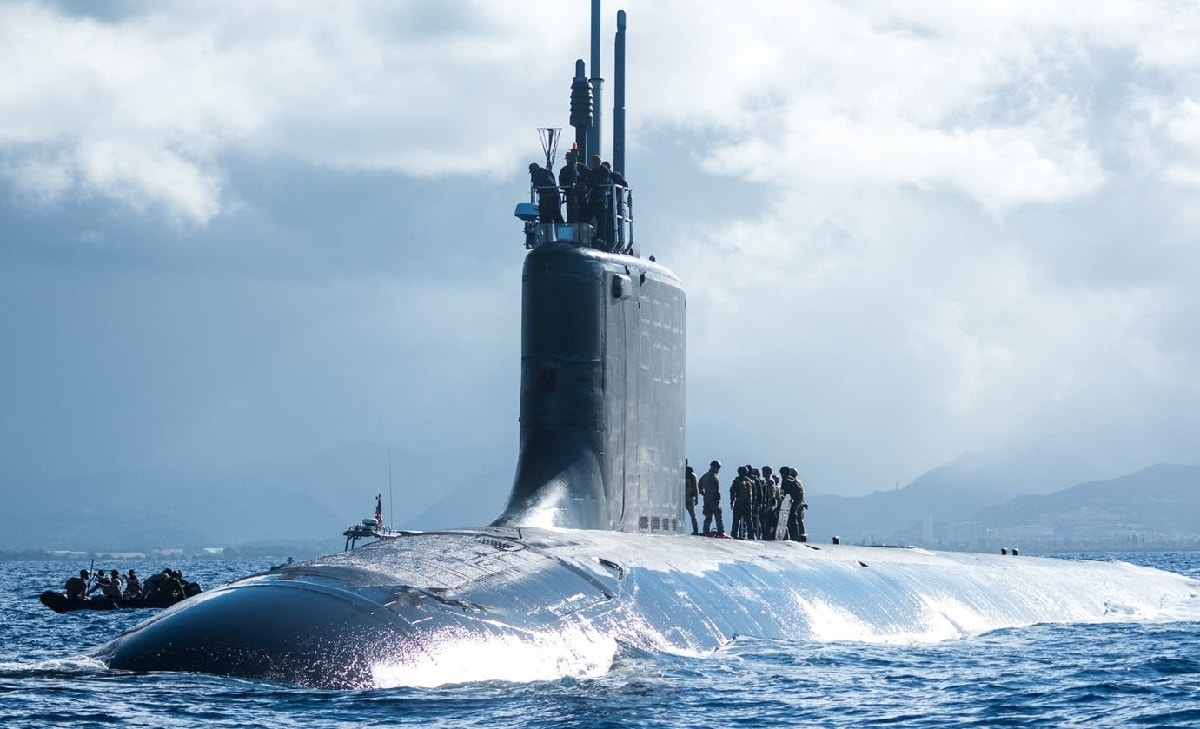Australian Prime Minister Anthony Albanese has expressed confidence that ongoing turmoil in the United States Congress will not disrupt the AUKUS nuclear submarine pact. During his official four-day visit to Washington, he confirmed his intention to continue engaging with senators and members of Congress, assuring reporters that these discussions have been and will continue to be productive.
The dysfunction within the US House of Representatives, marked by Republican infighting and the ousting of former Speaker Kevin McCarthy on October 3, has raised concerns about potential delays in crucial legislation required for the submarine pact. However, Prime Minister Albanese has remained optimistic about the situation.
Albanese told a press pack on Monday, “We are able to talk with legislators, and we’re doing so. I’ll be meeting some people this afternoon, and then again tomorrow, and then Wednesday and Thursday, while I’m here, and we’re very confident that those discussions have been very productive.”
When asked about the election of a new speaker, The Guardian said Albanese emphasized that it is a matter for congressional members, but Australia is committed to continuing its engagement with US legislators.
Australia’s Worries Over China Ties
Despite congressional dysfunction, there are also doubts regarding Australia’s willingness to align with the US in a potential conflict with China, which could pose an obstacle to the Aukus nuclear-powered submarine deal. The Aukus plan was initially intended to commence with increased visits by US submarines to Australian ports this year, followed by a rotational presence of one UK Astute class submarine and up to four US Virginia class submarines at HMAS Stirling near Perth, Western Australia, later in this decade.
Australia had previously allocated $3 billion to assist the US in reducing work backlogs on its Virginia class submarines and expanding production capacity. The Albanese government has hinted at the possibility of providing additional funding, contingent on negotiations between the two nations.
When questioned about increasing Australia’s financial commitment to persuade more Republican support for Aukus, Albanese asserted that the current level of support was “appropriate.” He explained that the government’s contribution would enable Australians to receive training alongside skilled personnel in the US and the UK, aligning with President Biden’s vision. The collaboration between the US, the UK, and Australia is expected to enhance the defense capabilities of all three nations and contribute to security preservation in the Indo-Pacific region.
Three Nations, One Idea
“The combination of the three nations cooperating when it comes to defense capacity lifts the capacity of everyone, of all three countries. That’s what this is about. Win-win-win for Australia, the United States, and the United Kingdom,” Albanese went on.
He also expressed his confidence that the US legislators he had engaged already with, regardless of their party affiliation, strongly support the Aukus deal.
As the political landscape in the United States remains turbulent, Prime Minister Albanese’s optimism reflects the importance of the Aukus pact and Australia’s commitment to strengthening its alliance with the US and the UK.
Georgia Gilholy is a journalist based in the United Kingdom who has been published in Newsweek, The Times of Israel, and the Spectator. Gilholy writes about international politics, culture, and education.

